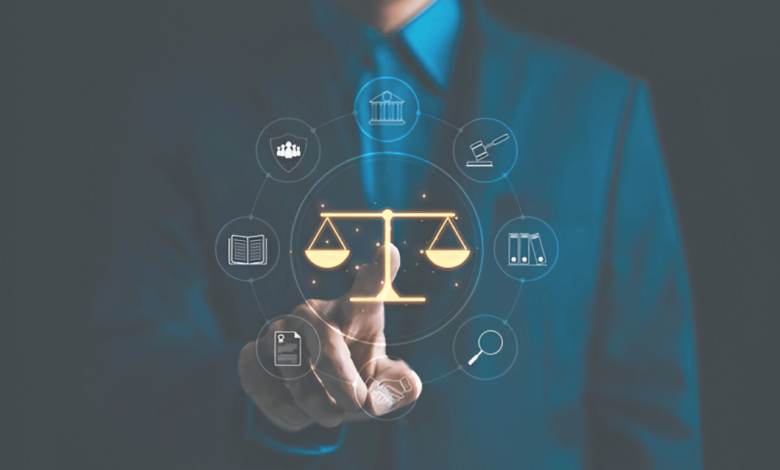Understanding Digital Privacy Laws in Everyday Life
Digital privacy laws protect your online data. Learn how GDPR, CCPA & global regulations impact your daily life & secure your personal information.

Digital privacy laws are the backbone of personal data protection in our increasingly connected world. Every online activity from social media interactions to financial transactions generates data that can be vulnerable to misuse without proper safeguards. Governments globally have established regulations like the General Data Protection Regulation (GDPR) and the California Consumer Privacy Act (CCPA) to ensure transparency, security, and user control over personal information. This article explores how these digital privacy laws impact daily life, why they matter, and how individuals can navigate them effectively.
As technology advances, so do the risks to personal privacy, making awareness of digital privacy laws more crucial than ever. These laws not only dictate how companies handle user data but also empower individuals with rights such as data access, deletion, and opt-out options. Whether you’re shopping online, using healthcare apps, or simply browsing the internet, understanding these regulations helps you protect your digital footprint. By the end of this guide, you’ll have a clearer picture of how digital privacy laws shape your online experiences and what steps you can take to stay secure.
Understanding Digital Privacy Laws in Everyday Life
The Importance of Digital Privacy Laws
In today’s digital age, personal data is constantly being collected, stored, and analyzed by corporations, governments, and even cybercriminals. Digital privacy laws exist to regulate how this data is handled, ensuring that individuals retain control over their personal information. Without such regulations, companies could misuse sensitive data, leading to identity theft, financial fraud, and unauthorized surveillance. One of the most comprehensive privacy laws is the General Data Protection Regulation (GDPR), implemented by the European Union in 2018. It mandates that businesses obtain explicit consent before collecting user data, provide transparency about data usage, and allow individuals to request data deletion.
How Digital Privacy Laws Affect Everyday Life
Every time you browse the internet, use a mobile app, or make an online purchase, your data is being tracked. Digital privacy laws influence these daily interactions by requiring companies to implement security measures and respect user preferences. For instance, websites now display cookie consent banners due to GDPR requirements, allowing users to choose which tracking mechanisms they accept. Social media platforms, under scrutiny for data misuse, have also adapted their policies. Facebook and Google, for example, now provide clearer privacy settings and data access tools in response to regulatory pressure.
Key Global Privacy Regulations
Several major digital privacy laws shape how organizations operate worldwide. Understanding these regulations helps individuals recognize their rights and hold companies accountable. The GDPR remains the gold standard, applying not only to EU-based companies but also to any business handling EU citizens’ data. It enforces principles like data minimization, meaning companies should only collect necessary information, and purpose limitation, ensuring data isn’t used beyond its original intent. Non-compliance can result in hefty fines, emphasizing the law’s seriousness. In the U.S., privacy laws vary by state. The CCPA grants Californians the right to access, delete, and opt out of data sales.
Steps to Protect Your Digital Privacy
While digital privacy laws provide a safety net, individuals must also take proactive steps to secure their data. Here are some practical measures to First, review privacy settings on social media and other online accounts. Limit data sharing and disable unnecessary tracking features. Second, use strong, unique passwords and enable two-factor authentication (2FA) to prevent unauthorized access. Password managers can help maintain secure credentials across platforms. Third, be cautious when sharing Personal data online. Avoid oversharing on public forums and verify the legitimacy of websites before entering sensitive details.
The Future of Digital Privacy Laws
Stricter Global Regulations and Harmonization
As data flows across borders, governments will push for more unified privacy frameworks. Laws like GDPR have set a benchmark, but future regulations may establish global standards to reduce compliance complexities for multinational corporations. Expect tighter restrictions on cross-border data transfers and increased cooperation between nations on enforcement.
Addressing AI and Algorithmic Transparency
Artificial intelligence relies heavily on user data, raising concerns about bias, discrimination, and lack of accountability. Future privacy laws will likely mandate transparency in AI decision-making, requiring companies to disclose how algorithms process personal data and allowing users to contest automated decisions.
Expansion of Biometric Data Protections
Facial recognition, fingerprint scans, and voice authentication are becoming commonplace. Legislators will introduce stricter rules on biometric data collection, storage, and usage, ensuring individuals have explicit consent rights and the ability to opt out of such tracking.
Consumer Empowerment Through Data Ownership
Future laws may shift toward granting users true ownership of their data, enabling them to monetize or revoke access entirely. Concepts like “data dividends” (compensation for personal data usage) and portable digital identities could become standard, giving individuals more control.
Enhanced Enforcement and Heavier Penalties
Regulators will likely increase fines for violations and expand enforcement mechanisms. Real-time compliance audits, mandatory breach disclosures within shorter timeframes, and stricter corporate accountability measures will become the norm to deter negligence.
Privacy-Centric Technology by Design
Companies will be legally required to implement Privacy by Design (PbD) principles in software, apps, and IoT devices. This means data encryption, minimal data collection, and default privacy settings will no longer be optional but legally mandated.
Rise of Decentralized and Anonymous Digital Identities
Blockchain-based self-sovereign identities (SSI) and zero-knowledge proof systems may gain legal recognition, allowing users to verify credentials without exposing personal data. Future laws could standardize these technologies to reduce reliance on centralized data brokers.
Combatting Deepfakes and Synthetic Media
As AI-generated content becomes harder to distinguish from reality, privacy laws will expand to cover deepfake regulations. This may include mandatory watermarks, consent requirements for synthetic media creation, and legal repercussions for misuse.
Read More: Common Legal Myths That Could Cost You Big
Conclusion
Digital privacy laws have fundamentally transformed how personal data is collected, stored, and shared in our daily lives. From giving users greater control over their information to holding corporations accountable for data breaches, these regulations have created a more transparent and secure digital landscape. As we continue to embrace online services for banking, healthcare, shopping, and social connections, understanding these laws remains essential for protecting our digital identities and exercising our rights effectively.
Looking ahead, digital privacy laws will only grow in importance as technology evolves and data collection becomes more sophisticated. New challenges such as AI-driven analytics, facial recognition, and cross-border data flows will require updated regulations and greater public awareness. By staying informed and proactive, individuals can navigate the digital world with confidence, knowing that strong legal frameworks exist to safeguard their privacy. Ultimately, these laws don’t just protect data they preserve trust, autonomy, and security in an increasingly interconnected world.
FAQs
What is the purpose of digital privacy laws?
Digital privacy laws regulate how companies collect, store, and use personal data, ensuring user rights and preventing misuse.
How does GDPR affect non-EU businesses?
GDPR applies to any organization handling EU citizens’ data, regardless of location, requiring compliance to avoid penalties.
Can I request my data from companies under CCPA?
Yes, California residents can ask businesses to disclose, delete, or stop selling their personal information under CCPA.
What are common ways to protect my digital privacy?
Use strong passwords, enable 2FA, adjust privacy settings, avoid oversharing, and stay updated on security practices.
Are there global standards for digital privacy?
While no single global law exists, GDPR has influenced many regions, leading to similar privacy regulations worldwide.











